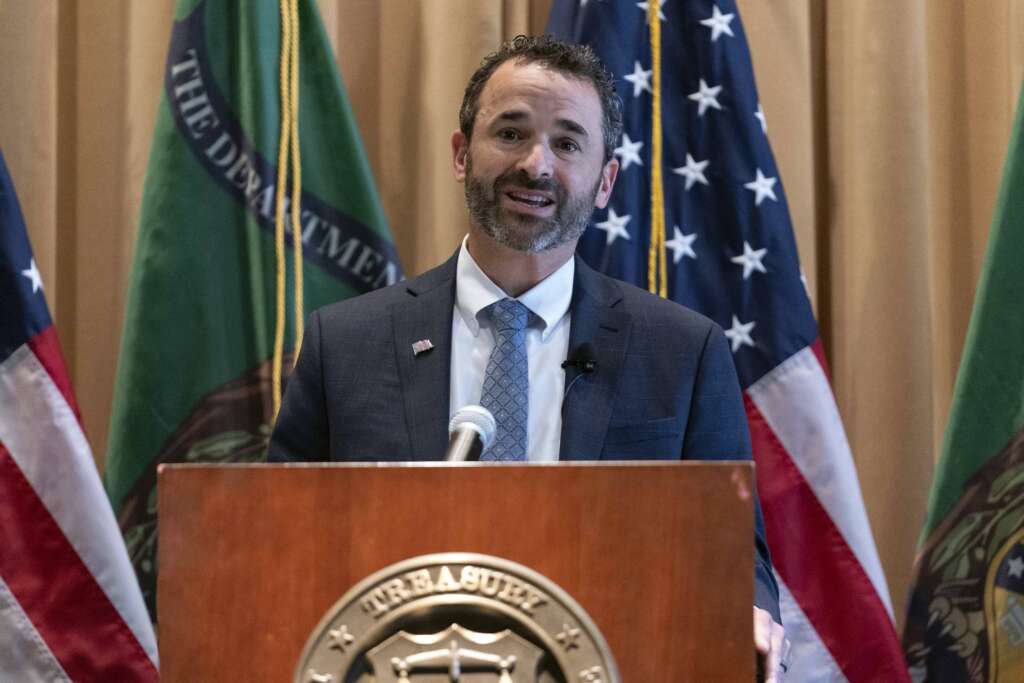
The IRS received billions of dollars in funding to spend over 10 years, but high expectations for improvement mean that the agency has much less time to get the job done, Commissioner Danny Werfel said Tuesday at the AICPA National Tax & Sophisticated Tax Conference in Washington, D.C.
“Now the inflation Reduction Act has a 10-year window where you have a decade by which to do this rebuild.” Werfel said. “However, another key lesson learned when I got to the IRS: We don’t have 10 years. There is what I would call a healthy pressure to immediately take these funds and demonstrate to the American people and to Congress and others that a well-funded IRS means that we can rapidly change, improve, and make advancements that taxpayers can see and feel.”
Under the Inflation Reduction Act of 2022, P.L. 117-169, the IRS was allocated $80 billion over 10 years, but that figure was cut to $60 billion during negotiations over the debt ceiling.
And the IRS’s annual budget appropriation from Congress is being cut, according to a report that the Internal Revenue Service Advisory Council (IRSAC) issued last week. For fiscal year 2023, Congress did not appropriate any funding for business systems modernization, which is one of four categories that has historically received money, the report said. And funding for taxpayer services and operations remained flat despite inflation, it said.
Werfel’s 3 key tasks
A fully funded IRS must be able to handle three big tasks, Werfel said: communicate with taxpayers, provide an equitable tax system, and fight tax scams that prey on the vulnerable. All require a fully functioning and fully funded IRS, he said.
On the first, taxpayers must be able to reach the IRS. “And I would think that an objective like this is nonpartisan, it’s unassailable,” he said. “I mean, if we’re going to have taxes, [if] we’re going to have a complex tax system, and the IRS is set up to help people, we should be there to help people resolve their issues. … And if you underfund the IRS, you’re basically preventing the taxpayers from having that critically important avenue to get their issues resolved with the IRS.”
Equity in the tax system means that the IRS must have the staff to treat wealthy individuals, corporations, and partnerships the same way it does middle- and low-income individuals and mom-and-pop businesses, he said.
On the day the Inflation Reduction Act was passed, Werfel said, the IRS had one exam professional for every 150 wealthy taxpayers with their complex returns that sometimes involve tens of thousands of pages.
“We should have just the same probability and likelihood of assessing a balance due regardless of what their return is, how many pages it is, or how complex [it is],” he said. “That’s what it means, in my opinion, to have an equitable tax system.”
An equitable tax system helps the federal budget also, Werfel said, “because there’s a lot of money sitting out there. When we have an inability to assess those balances due, we’re leaving money on the table.”
The advancement of AI means that scams are likely to scale quickly, he said.
“So going back to what an underfunded IRS versus a funded IRS means, an underfunded IRS is on its heels. The best we can do is potentially tweet out a warning. A funded IRS can be proactive,” Werfel said. “Give taxpayers new tools so that they can have visibility into when they’re being scammed or not. Do more aggressive outreach and community-based partnerships on these alerts. If someone is unfortunately victimized, support that victim and then do what we need to do to hold the perpetrators accountable. So there’s your choice, and again, I think that’s an unassailable choice.”
ERC claim withdrawal
Werfel also addressed the employee retention credit (ERC), a legitimate tax credit that became so rife with abuse that the IRS put in place a moratorium on processing new claims, beginning in September and lasting through at least the end of this year.
In October, the IRS released details of a process for eligible employers to withdraw ERC claims that have been filed but for which the employer has not received a refund. Claims that are withdrawn will be treated as if they were never filed.
Businesses can file 2021 ERC claims into 2025, so the IRS is updating its review procedures for new claims “to make sure there’s exact clarity, and we’re even stronger in our outreach in terms of what are the issues that that we see companies coming in thinking they’re eligible when they’re not,” Werfel said.
The ERC was a refundable tax credit for businesses that paid workers during the COVID-19 pandemic while their operations were fully or partially suspended because of a government order or for those that had a significant decline in gross receipts during the eligibility period. It was available from March 31, 2020, to Sept. 30, 2021, with a deadline of Dec. 31, 2021, for recovery startup businesses.
The IRS has said that it is also working on guidance to help employers who claimed the ERC and have already received the payment; at the tax conference, Werfel did not mention any plans for that.


